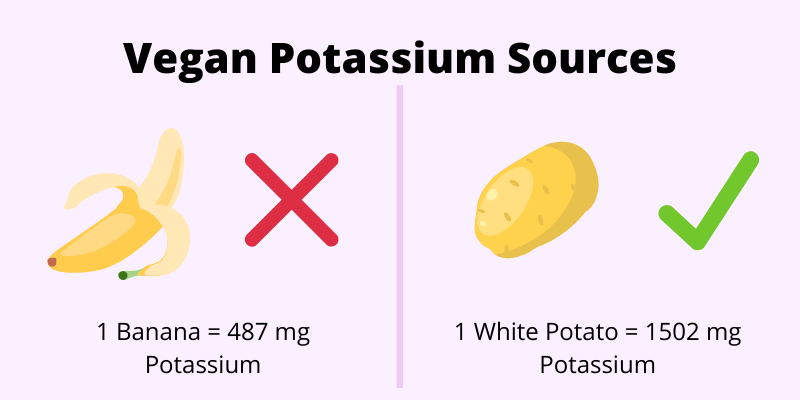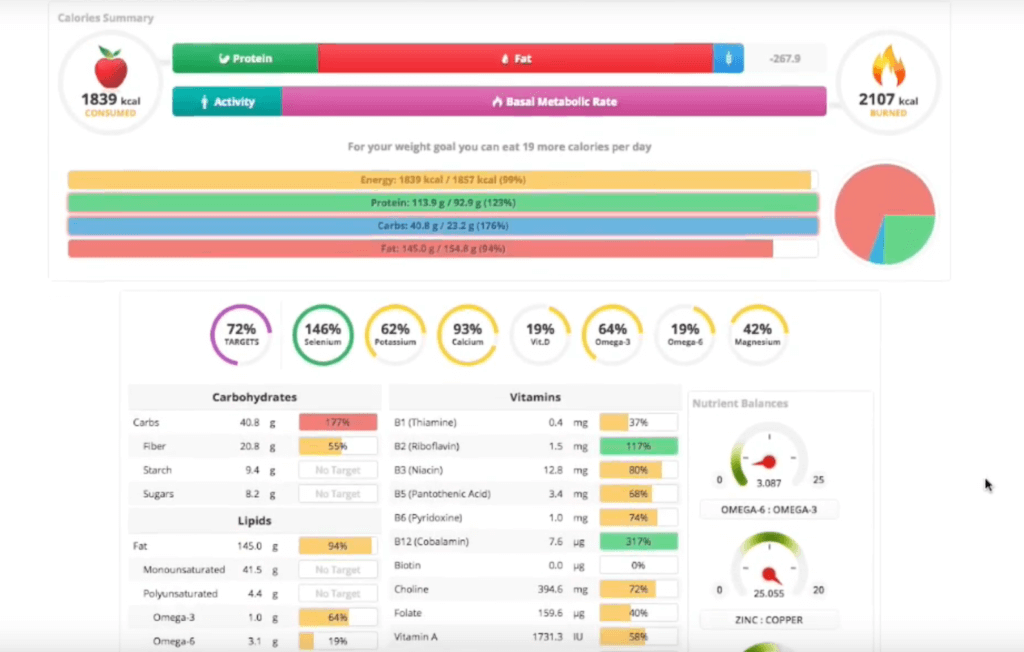Cramps and body aches in general are not well understood.
We know that certain things cause them in certain situations, but it can be hard to immediately know the cause of cramps.
Let’s look at which types of muscle cramps could be caused by a vegan diet.
Table of Contents
Causes of Muscle Cramps
For example, the most common causes of muscle cramps are:
- Extended periods of sweating from heat or exercise – Your electrolyte levels get low and may result in cramps.
- Dehydration – One of the most common causes of cramps because most people just don’t drink as much water as they should.
- Mineral depletion – Cramps can be caused by a lack of potassium or magnesium, but probably not as often as you think.
- Too much fat – A lot of fat in one meal can lead to stomach cramps and diarrhea. This should be obvious if this is the issue. It’s especially a problem for those with IBS.
There are other causes of cramps and body aches as well, just not as common as those 4.
The only one of those directly relating to diet is mineral depletion.
So the question becomes: Does a vegan diet put you at a higher risk for calcium or magnesium deficiency, or for eating too much fat?
Let’s look at them one at a time, and then I’ll summarize at the end.
Vegan Diets and Potassium Deficiency

Potassium deficiency has known to cause cramps for a long time, that’s why the classic advice is to “eat a banana.”
And while bananas have a decent amount of potassium, you’ll have to eat a lot of bananas to get enough. When you look at the amount per typical serving, there are better vegan sources of potassium, including:
- Spinach
- Swiss chard
- White potato
- Plantain
- Pummelo
- Durian
- Eggplant
- Adzuki Beans
- Melon
- Soybeans
It’s not hard at all to get potassium on a vegan diet, and a deficiency bad enough to cause regular cramps is unlikely.
But if you’re eating no vegetables, it definitely is possible, just as it is on an omnivorous diet.
Vegan Diets and Magnesium Deficiency
Studies have shown that cramps and aches via magnesium deficiency does occur. However, research has also shown that only a small percentage of cramps are actually caused by magnesium deficiency.
So it’s not the most likely cause of your cramps, but is a possibility.
Like potassium, the best sources of magnesium are all vegan. There are tons of great vegan sources of magnesium, here are the best ones:
- Swiss chard
- Buckwheat
- Oats
- Spinach
- Sesame seeds
- Brazil nuts
- Hemp seeds
- Rye grain
- Cashews
- Pine nuts
It’s also added to lots of cereals and some non-dairy milks, so it’s unlikely that you’re deficient in magnesium to the point that it’s causing cramps.
How Do You Check for Potassium or Magnesium Deficiency
If you’re not sure if you’re deficient in either of those minerals, I highly recommend using a food tracker that shows you your mineral intake.
Cronometer is the one I recommend, here’s my full Cronometer review that explains why.
It lets you input what you ate for the day, and will show you how much potassium and magnesium you had (as well as a ton of other nutrients).

Do this for a few days and you can be pretty sure if you’re sorely lacking in any particular nutrient.
Do Vegan Diets Usually Contain More Fat?
Last up is the fat issue.
When you switch to a vegan diet, the biggest thing that changes is protein.
Other than a few foods like seitan or tofu, most of the best vegan protein sources are legumes or nuts.
Legumes have a lot of carbohydrates in addition to protein, while nuts have a ton of fat.
If you’re eating a lot of nuts and nut butters, it can definitely cause some stomach issues and cramps. This should be a pretty obvious issue to spot compared to the others.
Again, Cronometer or some other food tracker can help you identify any areas of your diet that stand out.
Summary: How a Vegan Diet Affects Cramping
A healthy vegan diet is not likely to be the cause of any cramps.
It’s possible to be deficient in potassium or magnesium if you mainly eat vegan junk food, but a well rounded vegan diet with whole foods will prevent most deficiencies.
If you’re getting stomach cramps and digestive issues in particular, it’s likely caused by having too much fat in one meal (or overall on a regular basis). This often happens when new vegans start eating a ton of nuts, which are very high in fat and calories.
In conclusion, no, you’re not more likely to get cramps (leg or otherwise) on a vegan diet.
In fact, you’re probably less likely since vegan whole foods are loaded with minerals, but that has not been studied or proven yet (just my speculation).
If you have constant body aches, go see a doctor, because there’s likely something serious going on that needs to be checked out. A cramp here and there is pretty normal, but shouldn’t be a constant thing for most people.

I love being vegetarian and practicing vegan, I have started taking more magnesium because I had only 100mg in my vitamin supplement. Do I just have to keep taking my supplements, for a few weeks to get rid of the leg pain? I have also purchased some cream for restless legs that I rub on my legs before bed. It helps, but I just started having cramps behind my left knee. Thank you.
Hi Sandra,
So, the deal with supplements is that they help if you actually have a deficiency (which you may by the sounds of it).
For minerals like iron and magnesium, the body only absorbs so much at a time, so it can 8-12 weeks to fully replenish your stores. I know it can be frustrating (I’ve suffered from RLS in the past as well), but hang in there.
If you don’t notice a significant improvement in a month or two, I’d see a doctor if you haven’t already and get a blood test run to reveal any deficiencies.
Just wondering if a gold potato is the same as a white potato which l can’t find?
It’s not the exact same as a white potato, but the nutritional content is fairly similar.